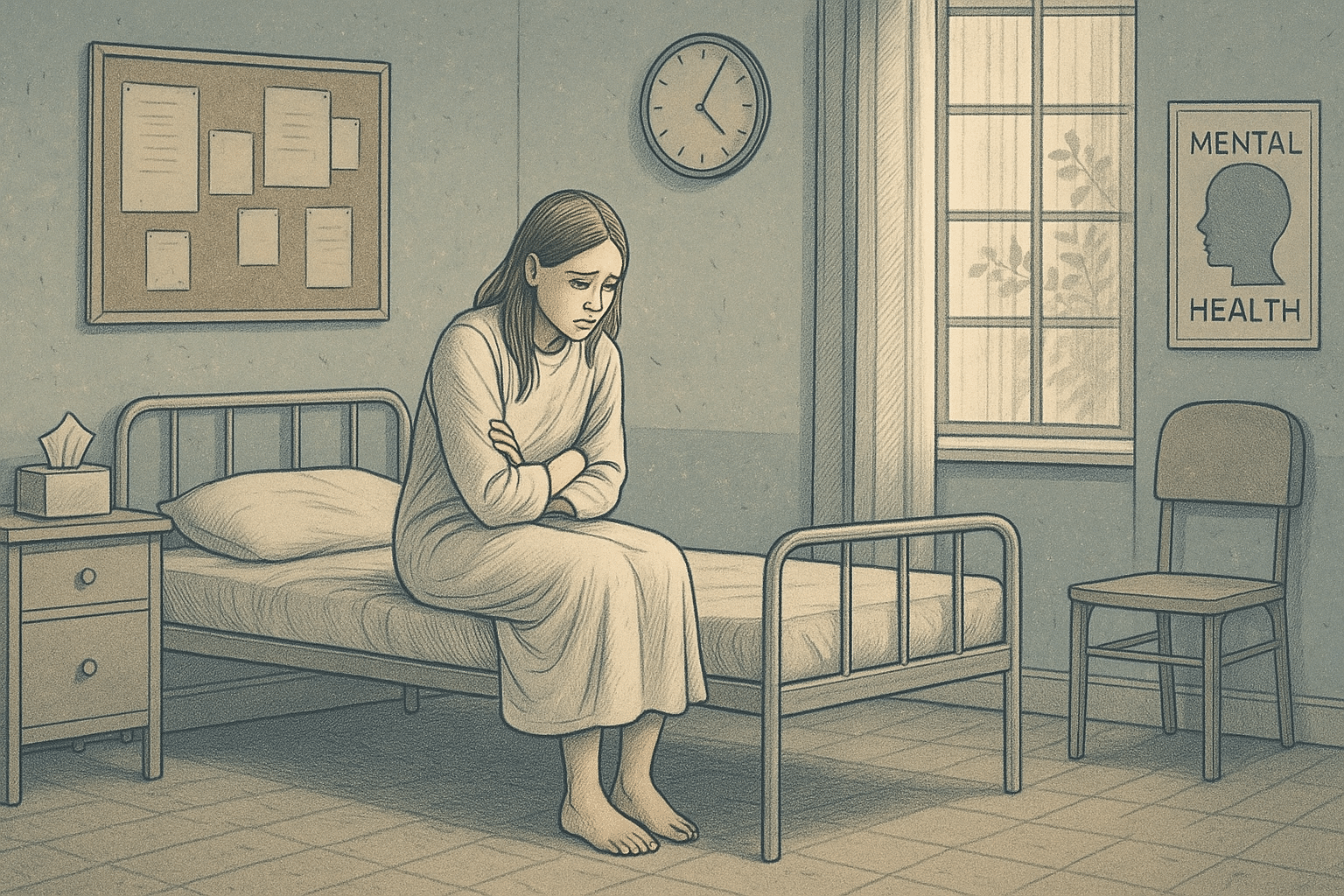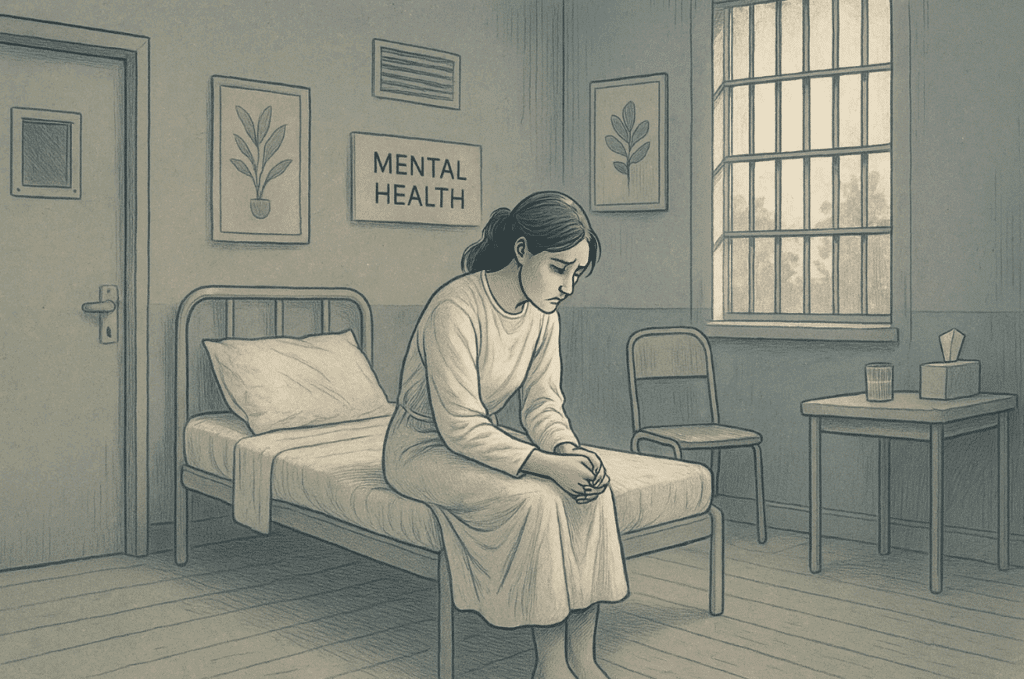Key Takeaways
- Emergency Custody Orders (ECOs) in Virginia allow for up to 8 hours of assessment, while Temporary Detention Orders (TDOs) extend to 72 hours for psychiatric treatment.
- Medical ECOs differ from mental health ECOs, requiring physician certification and focusing on immediate medical crises with a 4-hour duration.
- For a TDO to be issued, a certified prescreener must determine the individual meets all three criteria: mental illness, danger to self/others, and unwillingness/inability to seek voluntary treatment.
- The ECO-to-TDO pathway is not automatic; approximately 70% of ECOs result in TDOs following Community Services Board evaluation.
- Mission Prep Healthcare provides comprehensive adolescent mental health services including crisis intervention, family guidance through complex legal processes, and specialized treatment programs that bridge the gap between emergency intervention and long-term recovery.
When Mental Health Crises Require Legal Intervention
When individuals experience severe psychiatric symptoms that compromise their safety or the safety of others, Virginia law provides a structured process for intervention. This process balances the need for immediate treatment with respect for individual civil liberties. Mental health professionals must recognize when a situation has escalated beyond voluntary treatment options and requires legal intervention through either an ECO or TDO.
These protective orders were designed to create a safety net for those in acute psychiatric crises who cannot or will not seek help voluntarily. The distinction between ECOs and TDOs lies primarily in their duration, the level of assessment required, and the degree of restriction on personal freedom.
Mission Prep Healthcare specializes in mental health treatment for teens aged 12-17, offering residential and outpatient programs for anxiety, depression, trauma, and mood disorders. Our therapies include CBT, DBT, EMDR, and TMS, tailored to each adolescent’s needs.
With a structured, supportive environment, we integrate academic support and family involvement to promote lasting recovery. Our goal is to help teens build resilience and regain confidence in their future.
Emergency Custody Orders: First Response

ECOs represent the initial intervention in Virginia’s mental health crisis response system.
Defined under Virginia Code 37.2-808, an ECO authorizes law enforcement to take an individual into custody for mental health evaluation when there is probable cause to believe they meet specific criteria. This temporary custody allows for assessment by a certified prescreener while ensuring the safety of all involved.
The ECO process initiates the formal evaluation that determines whether further intervention is necessary. It serves as a critical juncture where clinical assessment meets legal authority, requiring careful documentation and clear communication among all parties involved.
What Qualifies Someone for an ECO in Virginia?
For an individual to qualify for an ECO in Virginia, they must meet specific criteria outlined in state law. The person must have a mental illness and, due to that illness, present an immediate danger to themselves or others, or be unable to care for their basic needs.
This determination requires evidence that the risk is current and substantial, not merely speculative or based on past behavior alone.
Who Can Request an ECO?
In Virginia, the authority to initiate an ECO varies depending on the circumstances. A magistrate can issue an ECO based on a petition from a concerned party, which could include family members, treatment providers, or community members.
Law enforcement officers can also initiate an ECO directly if they encounter someone in crisis who appears to meet the criteria. Additionally, in some jurisdictions, designated crisis response teams may have protocols for requesting ECOs when they identify individuals in need of immediate evaluation.
Time Limitations: The 8-Hour Window
One of the most critical aspects of an ECO is its strict time limitation. In Virginia, an ECO authorizes custody for a maximum of 8 hours. This time begins when law enforcement takes the individual into custody and continues throughout the evaluation process.
During the ECO period, a certified prescreener from the local Community Services Board conducts a comprehensive evaluation. This assessment includes a clinical interview, review of available records, consultation with treating providers if possible, and often discussion with family members or others familiar with the individual’s situation.
The assessment focuses on determining whether the individual meets criteria for a TDO or if less restrictive alternatives might be appropriate. Prescreeners must document their findings thoroughly, as their evaluation forms the basis for the magistrate’s decision regarding a potential TDO.
Temporary Detention Orders: Extended Intervention

A Temporary Detention Order represents a more significant restriction on liberty than an ECO and therefore requires meeting more stringent criteria.
Authorized under Virginia Code 37.2-809, a TDO permits involuntary hospitalization for up to 72 hours for further evaluation and treatment. This extended period allows for more comprehensive assessment, initiation of treatment, and preparation for a commitment hearing if needed.
TDOs form the bridge between emergency intervention and potential longer-term treatment. They provide a critical window during which stabilization can begin while preparations are made for either voluntary treatment or a commitment hearing.
The 3 Core Requirements for TDO Eligibility
For a TDO to be issued in Virginia, all three of the following criteria must be met, as determined by a certified prescreener and confirmed by a magistrate:
- The individual must have a mental illness that has been assessed by a qualified mental health professional.
- They must present a danger to themselves or others or be unable to protect themselves from harm as a result of their mental illness.
- They must be unwilling or unable to seek voluntary treatment, with all less restrictive alternatives to involuntary hospitalization deemed inappropriate or unavailable.
The 72-Hour Holding Period
Once a TDO is issued, the individual may be held for up to 72 hours (excluding weekends and holidays) while receiving evaluation and treatment. During this period, the treatment team conducts a more thorough assessment, begins appropriate interventions, and prepares for the commitment hearing that must occur before the TDO expires.
This extended timeframe allows clinicians to observe response to initial treatments and gather more comprehensive information about the individual’s condition.
The Court Hearing Process Following a TDO
Before the 72-hour TDO period expires, a commitment hearing must be held before a Special Justice. During this hearing, the individual has the right to legal representation, typically provided by a court-appointed attorney if they don’t have their own.
The hearing evaluates whether continued involuntary treatment is necessary based on the same three criteria required for the TDO. Clinical documentation from the treating facility plays a crucial role in this determination.
The Special Justice can make several different rulings at this hearing. They may order involuntary inpatient commitment for up to 30 days, mandate less restrictive mandatory outpatient treatment, or release the individual if the criteria are no longer met.
Key Differences Between ECOs and TDOs You Should Know
| Aspect | Emergency Custody Order (ECO) | Temporary Detention Order (TDO) |
| Legal Purpose and Authority | Temporary custody for mental health evaluation; probable cause needed from magistrate or law enforcement | Authorizes treatment and detention; requires certified prescreener’s assessment and magistrate approval |
| Duration and Time Constraints | Up to 8 hours (4 hours if issued by law enforcement) | Up to 72 hours for treatment and stabilization |
| Who Makes the Determination | Initiated by law enforcement or magistrate based on observation or petitions | Certified prescreener conducts evaluation; magistrate approves |
| Level of Restriction | Custody for evaluation only; no treatment authorized | Custody includes authorized treatment and admission to psychiatric facility |
| Next Steps After Expiry | Release, voluntary admission, or progression to TDO | Involuntary commitment, mandatory outpatient treatment, voluntary admission, or discharge |
Practical Guidance for Families and Caregivers
Preparing Documentation Before Seeking an ECO
You should gather specific information before seeking an ECO to help magistrates and evaluators make informed decisions.
This documentation should include recent concerning behaviors, statements, or actions that suggest danger; history of mental illness and treatment; current medications and compliance; and any relevant history of violence, suicidal behavior, or inability to care for basic needs.
Providing concrete examples rather than general concerns significantly strengthens the case for intervention and helps expedite the evaluation process.
What to Expect During the Process
You should be prepared for what can be a confusing and emotionally challenging process. Once an ECO is issued, law enforcement will take your loved one into custody and transport them to a location where a CSB prescreener can conduct an evaluation.
Family members may be asked to provide information but might not be permitted to be present during the actual evaluation. The entire process, from ECO to potential TDO decision, can take several hours.
If a TDO is issued, the individual will be transported to a psychiatric facility, which may not be in the immediate area depending on bed availability. You should expect limited contact during the initial admission process as the clinical team conducts their assessment and begins treatment planning.
Expert Crisis Intervention at Mission Prep Healthcare
At Mission Prep Healthcare, our specialized adolescent mental health programs are designed to seamlessly integrate with Virginia’s emergency intervention system, providing the intensive treatment foundation that teens often require following involuntary psychiatric holds.
Our clinical team works collaboratively with Community Services Boards, emergency departments, and legal professionals to ensure smooth transitions from crisis intervention to therapeutic treatment. We recognize that psychiatric emergencies can be traumatic for entire families, which is why our approach extends beyond individual treatment to include family education, support, and healing.

Our facilities provide the right environment for recovery and healing.
Mission Prep’s evidence-based programs address the underlying mental health conditions that often precipitate crisis situations, helping prevent future emergencies while building sustainable recovery skills.
When psychiatric crises disrupt your family’s life, our comprehensive services provide the expert care and ongoing support necessary for lasting positive outcomes.
Frequently Asked Questions
What happens if someone doesn’t meet TDO criteria after an ECO?
If the certified prescreener determines the individual doesn’t meet all three TDO criteria during the 8-hour ECO evaluation, they must be released or offered voluntary treatment options. The prescreener may recommend discharge planning, outpatient services, or voluntary admission to ensure appropriate follow-up care while respecting the person’s rights.
Can family members initiate an ECO in Virginia?
Yes, family members can petition a magistrate to issue an ECO by providing evidence that their loved one meets the criteria for emergency intervention. They can also contact law enforcement or crisis hotlines to request evaluation, though the final decision to issue an ECO rests with magistrates or authorized law enforcement officers.
What legal protections exist during ECO and TDO processes?
Individuals retain significant rights including legal representation at commitment hearings, the right to refuse participation in evaluations (though this doesn’t prevent the process), confidentiality protections for medical records, and the right to challenge orders through legal means. Court-appointed attorneys are provided for commitment hearings following TDOs.
How does Mission Prep support families during ECO and TDO situations?
Mission Prep Healthcare offers specialized crisis intervention services, family education about Virginia’s involuntary commitment processes, and comprehensive adolescent treatment programs. Our clinical team provides guidance through complex legal procedures while offering evidence-based treatment options including residential, outpatient, and telehealth services designed specifically for teens and their families.





















